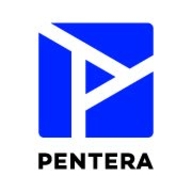

Tenable Vulnerability Management and Pentera compete in the cybersecurity space, focusing on vulnerability assessment and management. Tenable appears to have the upper hand with its comprehensive features and extensive integration, while Pentera stands out with its specialized approach to real-time risk assessment and efficient customer service.
Features: Tenable Vulnerability Management is distinguished by its comprehensive scanning capabilities, scalability, and extensive vulnerability database, making it beneficial for enterprises needing broad security coverage. It also offers strong integration with various tools. Pentera provides automated continuous vulnerability assessments, unique attack surface mapping, and actionable remediation guidance, which are useful for assessing real-time risks.
Room for Improvement: Tenable Vulnerability Management needs better support integration, improved role management, and more intuitive user interfaces. There's a demand for enhanced dashboard customization as well. Pentera needs improved scalability for smaller networks, more flexible licensing options, and better integration with virtualization environments.
Ease of Deployment and Customer Service: Tenable offers extensive cloud deployment options, including public and hybrid environments. However, its customer support is often criticized for slow response times. Pentera delivers consistent on-premises and hybrid cloud solutions, with quicker issue resolution, leading to higher overall customer satisfaction.
Pricing and ROI: Tenable is seen as a high-cost solution, justified by its robust feature set but less accessible for SMBs due to a lack of affordable options. Pentera is priced similarly but provides more cost-effective solutions for proactive cybersecurity testing. Users of both products see a positive ROI, though Tenable's clients desire more flexible pricing models to enhance ROI.
Some customers consider the ROI favorable, but facing difficulties now due to changes in the licensing model, which has made it more expensive compared to last year.
The technical support of Tenable Vulnerability Management is available 24/7, and whenever we require support, we can get it within five minutes.
It needs improvement in response time and addressing feature requests promptly.
I would evaluate Tenable Vulnerability Management's customer service and technical support as average.
They can seamlessly scale the number of endpoints from 100 to 1,000,000 in a day.
It is highly scalable and very user-friendly when it comes to scalability.
I have faced no stability issues with Tenable.
The stability of Tenable Vulnerability Management is highly reliable.
The stability is commendable, and I would rate Tenable ten out of ten.
When the IP is imported into a system, we cannot withdraw or revoke the license.
They should also accelerate the process of implementing new features upon request.
Tenable Vulnerability Management is not very effective for real-time risk prioritization for our organization's security strategy.
I would suggest HP WebInspect as a better option than Tenable.io.
Tenable charges around $40 per device, while Rapid7 costs $10 to $15 per device.
We can automate the Pentera processes by automatically creating scenarios to validate the system.
Tenable enables vulnerability management through potential AI integration that consolidates efforts and resolves multiple vulnerabilities simultaneously.
The main benefit of integration with Tenable Vulnerability Management is that there will be no lack of missing vulnerabilities when it comes to the patching environment.
The best features of Tenable Vulnerability Management are flexibility, breadth and scope, and the fact that their current vulnerabilities come out, and they have tests for them within a day or two.
| Product | Market Share (%) |
|---|---|
| Pentera | 28.5% |
| Cymulate | 20.0% |
| Picus Security | 17.2% |
| Other | 34.3% |
| Product | Market Share (%) |
|---|---|
| Tenable Vulnerability Management | 4.5% |
| Wiz | 10.6% |
| Tenable Nessus | 7.4% |
| Other | 77.5% |


| Company Size | Count |
|---|---|
| Small Business | 5 |
| Midsize Enterprise | 1 |
| Large Enterprise | 4 |
| Company Size | Count |
|---|---|
| Small Business | 20 |
| Midsize Enterprise | 2 |
| Large Enterprise | 21 |
Pentera is the category leader for Automated Security Validation, allowing every organization to evaluate its security readiness, to know its real security risk at any given moment. Test all cybersecurity layers across the attack surface – inside and out – by safely emulating attacks & prioritize patching with a risk-based remediation roadmap.
Thousands of security professionals and service providers around the world use Pentera to guide remediation and close security gaps before they are exploited. For more info visit: pentera.io
Managed in the cloud and powered by Tenable Nessus, Tenable Vulnerability Management (formerly Tenable.io) provides the industry's most comprehensive vulnerability coverage with real-time continuous assessment of your organization. Built-in prioritization, threat intelligence and real-time insight help you understand your exposures and proactively prioritize remediations.
We monitor all Breach and Attack Simulation (BAS) reviews to prevent fraudulent reviews and keep review quality high. We do not post reviews by company employees or direct competitors. We validate each review for authenticity via cross-reference with LinkedIn, and personal follow-up with the reviewer when necessary.